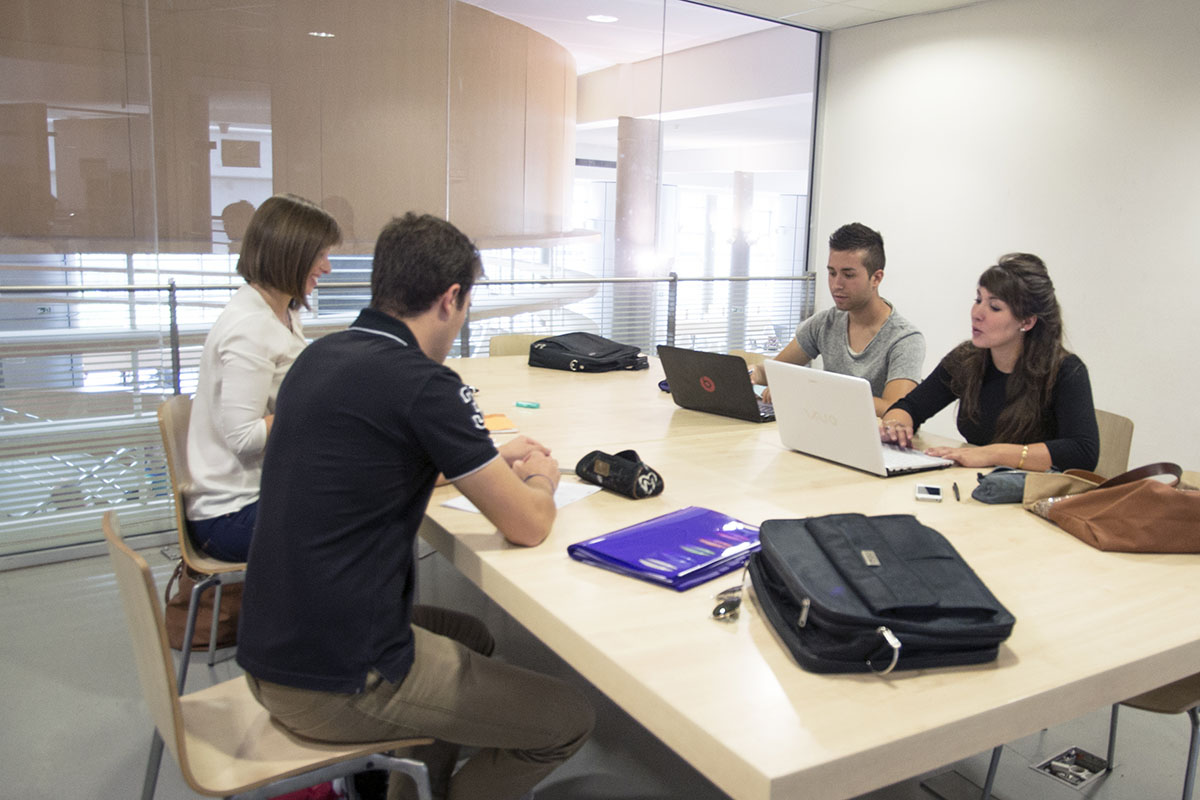A transdisciplinary start to the new school year
To train experts capable of meeting the new challenges facing our societies, the University of Montpellier is focusing on transdisciplinarity. Focus on three new innovative courses inaugurated this year.

Breaking down the barriers between disciplines to provide students with all the skills required in a constantly evolving job market is the formidable challenge of transdisciplinary training. The University is fully committed to this approach, as demonstrated by the 3 new courses it has launched this autumn.
Open windows
At the Faculty of Law and Political Science, " we're opening the windows ", confides Catherine Ribot. The co-director of the Master's degree in Food Law and Agroecology is convinced that " we need to look at the relationships between disciplines and avoid getting bogged down in codes ". For food and agro-ecology are European and global issues that go far beyond the essential questions of compliance or food safety. " Traditionally, we asked ourselves whether food was healthy in the sense of being good for our health. Now we're also asking whether it's healthy for the environment, whether it enables a fair distribution of wealth between the various professionals, and a harmonious construction of territories ", explains Malo Depincé, co-leader of the master's program.
And to train experts capable of grasping all these dimensions, we need to break down barriers. This transdisciplinarity operates on two levels," explains Catherine Ribot. On the one hand, by opening up to non-legal areas of practice such as food and agriculture, and on the other, within the disciplines of law itself, as students will need elements of both private and public law ", emphasizes the environmental law specialist. The aim is to train experts in the field of food and agro-ecology from A to Z. " A single point of contact capable of dialoguing with all players in the industry, from producers to distributors ", explains Malo Depincé, himself a specialist in market law.
With a law degree to back them up, the future experts are starting their Master 1 course this year. After 2 years' training with a team of law professors and external contributors such as lawyers, corporate lawyers and members of associations, the future specialists in food law and agroecology can look forward to a wide range of career opportunities: " specialized lawyers, magistrates specializing in food law cases, legal advisors in companies, local authorities and ministries, the needs are varied ", says Catherine Ribot, who points out that this is the first course of its kind in France.
Meeting the demands of new professions
A pedagogical innovation also on display in the Faculty of Economics and the Faculty of Law and Political Science. And another "national first" made in UM is the "Economics and Political Science" dual degree, the only one of its kind in France, run by Thomas Cortade in the Faculty of Economics and Eric Savarese in the Faculty of Law and Political Science.
Resolutely multi-disciplinary, this dual degree is designed to meet the demands of new growth areas, particularly in the fields of the environment, energy, decision support, development projects, transnational governance and the regulation of complex societies.
The challenge? To train managers for positions of responsibility in the public and private sectors, both in France and abroad. These opportunities require skills in economics, political science and, more generally, social sciences and national and international institutions.
To achieve this, students in this bi-licence follow the fundamental courses of both the economics and political science bachelor's degrees, which they validate by taking a bi-disciplinary oral exam. This exam will enable them to demonstrate the contribution of both disciplines to the analysis of the contemporary world situation... and prepare them for the professions of the future.
Meeting the challenges of today and tomorrow
At UM, transdisciplinarity is also an international concept, with the CHARM-EU Master's degree launched this autumn. Innovative, transdisciplinary and resolutely focused on major environmental and societal challenges, this master's degree, unique in Europe and the fruit of collaboration between UM and its four partners in the CHARM-EU alliance, represents a veritable educational revolution.
Bringing together students from all over the world, and from disciplines as diverse as law, biology, human and social sciences, sport and management, the CHARM-EU master's program pools skills to better understand the environmental and social issues facing our societies, such as water management, global health - both human and environmental - and food. We don't want to compete with existing Masters programs," explains Gilles Subra. We won't be training economists or hydrologists, but new trans-disciplinary profiles destined for European careers and cross-disciplinary project managers."
To meet the challenges of today - and tomorrow - students will benefit from innovative teaching based on active learning. "It can be summed up in two words: challenge based. Our aim is to ensure that students acquire the skills they need to meet the challenges associated with the major themes on offer," explains Patricia Cucchi, professor of organismal biology at the University of Montpellier and member of the CHARM-EU working group on teaching and learning strategies.Challenges from civil society, business and research, always with scientific approach and rigor as thecornerstone. And just as innovative are the examination procedures, with progressive assessment centred on the student and adapted to his or her pace, using a whole range of methods from simple quizzes to portfolios, in place of traditional mid-term exams.